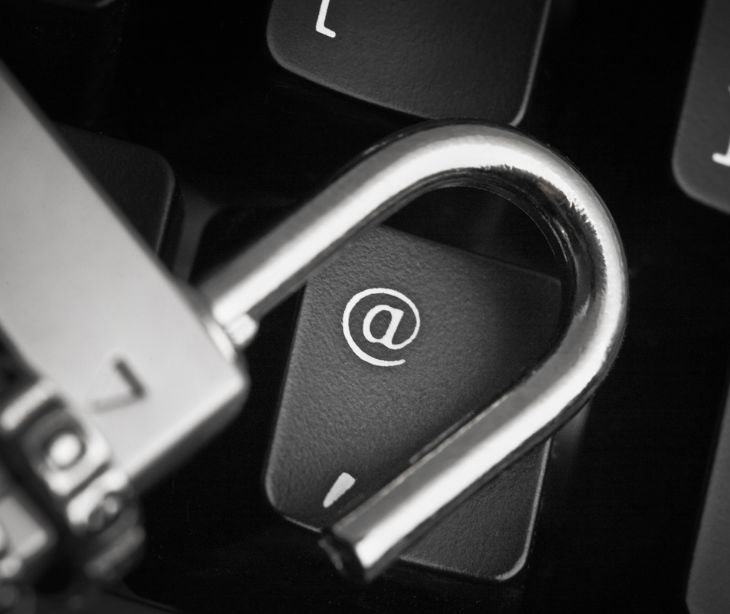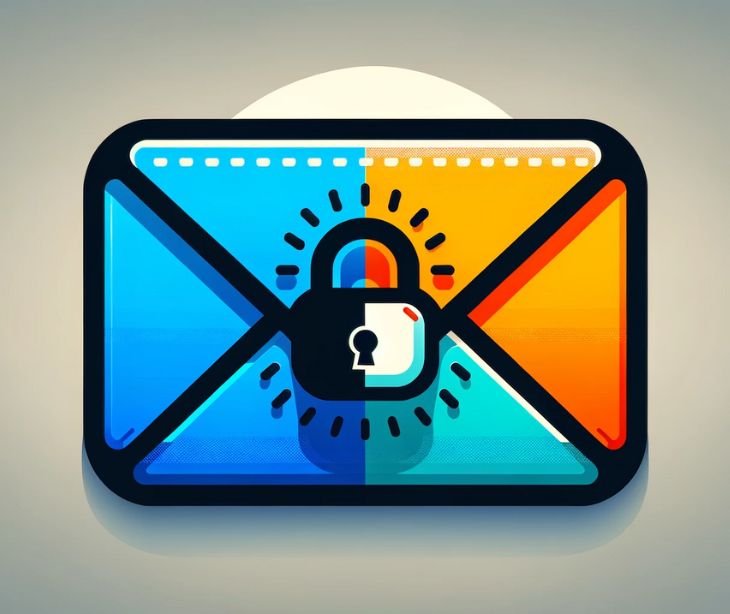
An email security policy is a document that outlines how an organization protects its email communications from threats while ensuring compliance with regulations like HIPAA. This guide will help you create a policy that safeguards sensitive information and sets clear expectations for email usage.
Related: HIPAA Compliant Email: The Definitive Guide
Components of an email security policy
Access control and authentication
Your policy should clearly define who has access to email systems and how that access is granted. Strong passwords and multi-factor authentication are required for all email accounts. Establish procedures for creating, modifying, and terminating email access when employees join, change roles, or leave the organization.
Go deeper: What is user authentication?
Encryption requirements
Specify when and how encryption should be used for email communications. For healthcare organizations, this means ensuring all emails containing protected health information (PHI) are encrypted in transit and at rest. Define which email security solutions, like Paubox Email Suite, will be used to maintain HIPAA compliance.
Read more: Why should ePHI be encrypted at rest and in transit?
Acceptable use guidelines
Establish clear rules for appropriate email use, including:
- What types of information can be sent via email
- How to handle sensitive data
- Restrictions on personal use of business email
- Guidelines for professional communication
Go deeper: What types of healthcare-related inquiries can I make via email?
Threat prevention measures
Detail specific practices to prevent email-based attacks:
- How to identify suspicious emails
- Steps to verify sender authenticity
- Procedures for reporting potential threats
- Rules about opening attachments and clicking links
Related: Steps to protect against phishing attacks
Incident response procedures
Define clear steps for handling email security incidents. Employees should know exactly who to contact and what actions to take if they suspect a security breach. Include contact information for the IT security team and HIPAA compliance officer. Outline documentation requirements and timeframes for reporting incidents, especially those involving protected health information.
Read more: What is an incident response plan?
Mobile device management
With healthcare professionals increasingly using mobile devices to access email, address specific security requirements for mobile access. Include guidelines for securing devices, requirements for mobile email apps, and procedures for handling lost or stolen devices that have email access.
Go deeper: What is mobile device management?
Training requirements
Specify mandatory email security training for all employees. Include:
- Initial training for new employees
- Regular refresher courses
- Updates when new threats emerge
- Documentation of completed training
- Testing to verify understanding
Related: The role of employee education in email security for healthcare organizations
Compliance and monitoring
Explain how the organization monitors email usage for security and compliance. Be transparent about:
- Email activity monitoring
- Compliance auditing procedures
- Record retention requirements
- Consequences for policy violations
FAQs
How do you ensure employees actually follow the policy?
Success requires a combination of clear communication, regular training, consistent enforcement, and leadership support. Make the policy easily accessible, conduct periodic compliance checks, and use automated tools where possible to enforce security requirements.
What are the most important HIPAA requirements for email security?
HIPAA requires encryption of PHI, access controls, audit trails, employee training, and incident response procedures. The policy must address each of these elements and specify how they'll be implemented and monitored.
What are the consequences of not having an email security policy?
Without a policy, organizations risk inconsistent security practices, increased vulnerability to attacks, potential data breaches, regulatory violations, and financial penalties. For healthcare organizations, this could mean HIPAA violations and compromised patient information.
Subscribe to Paubox Weekly
Every Friday we bring you the most important news from Paubox. Our aim is to make you smarter, faster.




